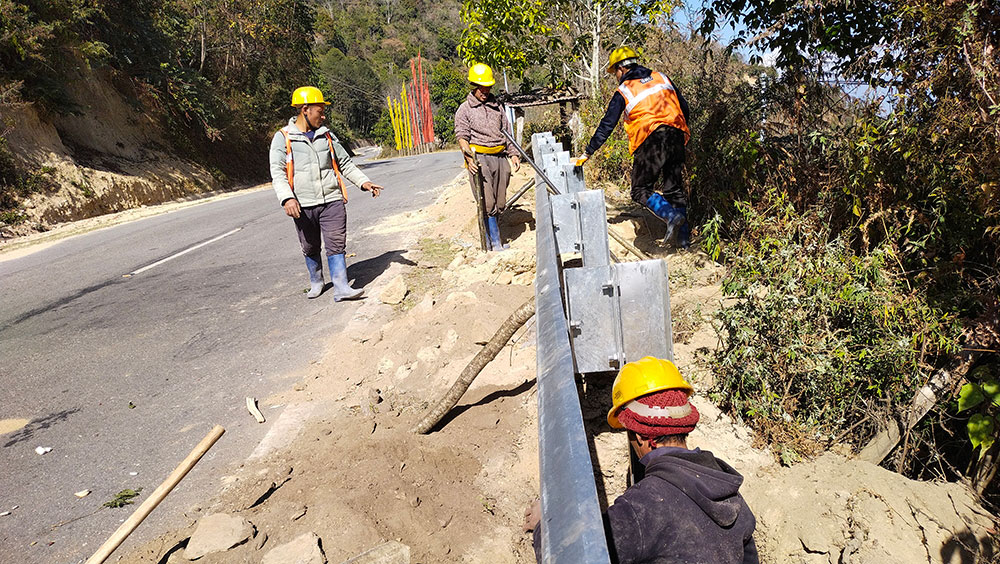Neten Dorji
Trashigang—Owing to more than double the amount being offered in salary, Choden, a mother of two, switched her job as a labourer at the Department of Road and took up a job as a helper at Project DANTAK.
Like Choden, more than 500 Bhutanese road workers are currently deployed between Trashigang and Samdrupjongkhar under Project Dantak when it faced labour shortage as workers from Indian left for home in the wake of the covid-19 pandemic.
They remove rocks and clear it for traffic during monsoon, clear the drain, mix cement and help with the construction of the wall, and also trim the grass along the road above the roads.
“I switched jobs since the wage rate in Project DANTAK is more than what I was paid by DoR. For me it is a huge difference,” Choden said.
Choden said that the cost of living was getting expensive by the day, and monthly payment in DoR was not enough to support her family. “I feel much more at ease with the cash I received from Project DANTAK than I did in the past. I want my children to be educated and do well in life.”
Most of the Bhutanese workers working on the road have similar stories to share—they want additional income to support their family and children’s education. Many come from disadvantaged family backgrounds.
Jigme, 47, from Trashigang Pam started working with Project DANTAK two years ago, leaving the farm work since there was not much return from the land.
“I joined Project DANTAK because I had debt to clear. Moreover, we do not have an alternative source of income in the villages,” he said. He earns around 14,000 a month.
Another roadside worker, Karma Wangmo, agrees the wage of Nu 14,000 a month is better compared to the Nu. 6000 a month she used to earn working for DoR. Her four other siblings also work under Project DANTAK.
“There are no jobs in the villages now. It is hard to cultivate the land,” she says.
Sonam, a worker from Kurtoe, used to work as a driver in Samdrup Jongkhar. He did not return back to Samdrupjongkhar after he found a job with Project DANTAK. Working as a driver he had a bad experience of not receiving payments on time.
“The work is heavier than that of a driver, but I prefer to be a labourer over a driver because Project DANTAK pays on time,” he said. He earns around Nu 8,000 in a month as a driver. Now he earns Nu 14,000 in a month.
However, most of the road side workers along the highway say that although they were satisfied with their work, some in the communities look down on them.
“What they think of us doesn’t matter. Finally, it is money that everyone needs,” said Yonten Tshering. “The main issue is that we don’t have holidays as per the Bhutanese calendar.”
One of the labourers expressed that as inflation continues to surge and civil servants receive salary increases, they were also expecting the Project DANTANK to revise the minimum wage.
“We remain hopeful that our wage rate will be revised soon. Everything is becoming more expensive, but our wages remain the same.”
Project Dantak officials said they reviewed wages yearly and increased by 3 to 5 percent. “We hire both skilled and unskilled labourers, and train them along with skilled labour where people get benefits from the project DANTAK.”


